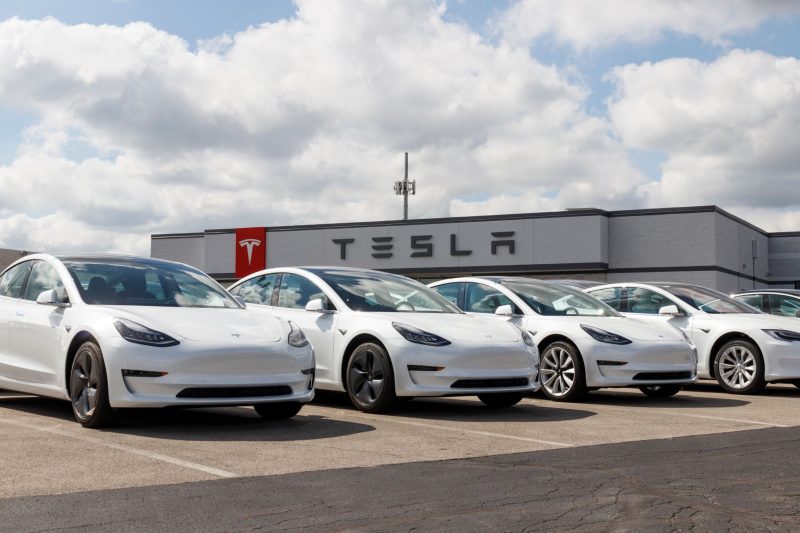Wall Street’s focus on the auto industry has taken a political twist as analysts and investors assess which stocks stand to benefit regardless of the outcome of the upcoming US presidential election.
While much of the auto sector has struggled, Tesla Inc. emerges as a potential winner regardless of whether Vice President Kamala Harris or former President Donald Trump takes office, analysts suggest.
Traditional automakers like Ford Motor Co. and Stellantis have faced challenging years in 2024, with Ford down nearly 7% and Stellantis dropping by over 40%.
General Motors has bucked the trend, up 47% in 2024, thanks in part to robust share buybacks and steady performance.
However, despite these gains, traditional auto stocks are trading at a significant discount, averaging just five times their projected 2025 earnings — a fraction of the S&P 500’s multiple of 21.
EV makers have also seen mixed results. Tesla is up 5.7% this year, lagging behind the broader market, while electric vehicle (EV) startups Lucid and Rivian have seen steep declines, down 40% and 54%, respectively.
EV challenges dampen growth prospects
While the US election might play a role in the auto sector’s future, the industry is facing challenges that extend far beyond political considerations.
The sector has encountered obstacles in scaling EV production, with slowing growth, rising incentives, and high inventories adding pressure on profits.
Additionally, car prices have softened, and automakers continue to grapple with high dealer inventories and slowing production growth.
Despite the industry’s investment in EV infrastructure and the push for cleaner energy alternatives, growth has been slower than anticipated.
For many analysts, this indicates that the challenges facing automakers are deeply structural and unlikely to be significantly altered by the results of the presidential election.
Election impact: Harris win versus Trump victory
Should Harris win the election, Wall Street expects “business as usual,” with no significant changes to emissions policies or EV tax incentives.
A Trump victory, however, could bring significant changes to EV tax credits and trade policies that impact the auto industry.
Trump has previously expressed intentions to remove tax credits for EVs, potentially slowing growth in the sector.
Additionally, his tariff policies, including potential tariffs on Mexican imports, would impact automakers with significant production operations in Mexico, such as GM and Stellantis.
John Murphy, an analyst with BofA Securities, believes that Trump’s policies could be slightly positive for traditional automakers like Ford and GM, which have more profitable gas-powered vehicle lines.
According to Wolfe Research analyst Emmanuel Rosner, Ford would fare particularly well under a second Trump term due to its relatively limited exposure to Mexican production.
Tesla’s unique position
Tesla is expected to perform well under either administration.
Analysts believe that if Harris is elected, the company will continue to benefit from tax incentives for EVs and from the sale of regulatory credits.
In the event of a Trump win, Tesla’s domestic manufacturing could give it an advantage, as the company has no production operations in Mexico.
Beyond manufacturing, Tesla’s planned foray into autonomous driving technology may also benefit from a Trump presidency.
A Trump administration might favour deregulation for autonomous driving technology, which could boost Tesla’s stock as the company aims to launch its robo-taxi service by 2025.
Auto parts suppliers face mixed fortunes
Auto parts suppliers, including Aptiv and TE Connectivity, are seeing unique impacts from the current political landscape. In 2024, these companies in the Russell 2000 index have fallen an average of 27%, trading at just 12 times projected earnings.
However, analysts believe a Harris administration would favour EV parts suppliers as they supply components specifically tailored for EV production.
According to Rosner, Aptiv and TE Connectivity’s reliance on EV manufacturing positions them for growth under policies favoring electric vehicle expansion.
While political developments could influence these companies, analysts caution that factors beyond the election will play significant roles in the auto industry’s future.
Supply chain resilience, advancements in EV technology, and the market’s evolving preferences for electric over traditional gas-powered vehicles are key elements that will shape long-term performance.
Key events shaping auto stocks
As the US election draws closer, Wall Street is tracking factors that could influence auto stocks.
Analysts suggest that while politics could add complexity, underlying fundamentals will continue to drive stock valuations across the sector.
Tesla, for instance, remains a standout in the industry as it navigates the regulatory landscape while pushing forward on innovation in EV and autonomous driving technologies.
In the case of Ford and GM, investors are evaluating whether their traditional vehicle portfolios will provide stability in a shifting political environment.
And for EV parts suppliers like Aptiv and TE Connectivity, their fortunes may hinge on which administration takes office and how it approaches emissions policies.
The auto industry faces a unique intersection of political and market dynamics in the lead-up to the election.
But as analysts warn, the performance of individual stocks and the sector as a whole will rely on more than just the policies of the next president.
The post Harris vs Trump: Whoever wins US elections, Tesla is set to thrive, say analysts appeared first on Invezz


